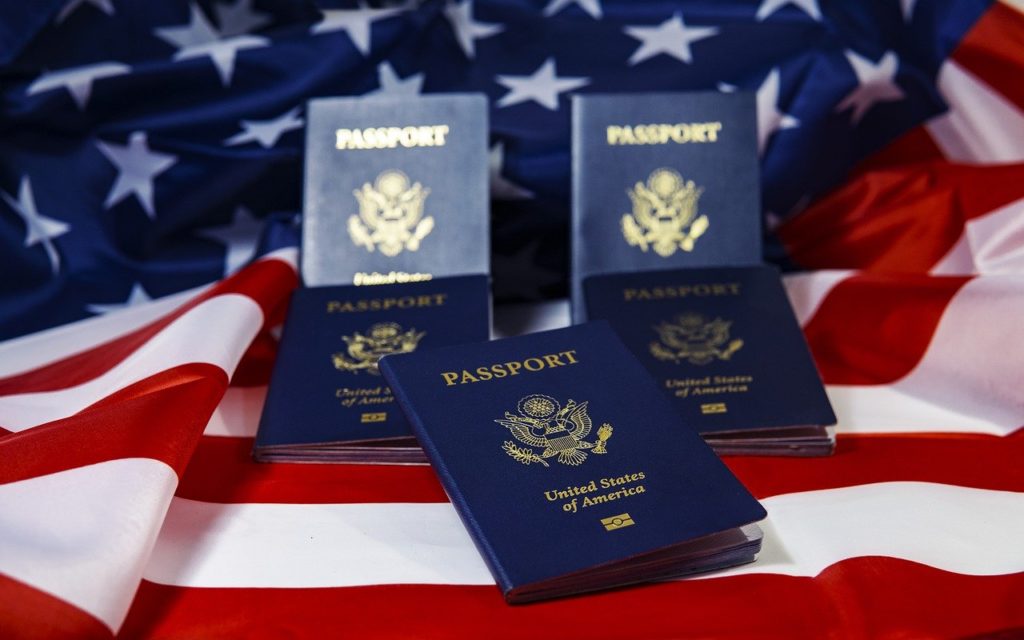

The first requirement for all applicants for naturalization as a US citizen is to be a permanent resident (i.e., have a green card). Depending on your circumstances, you must be a permanent resident for at least 3 to 5 years before applying for citizenship. In addition, you must be 18 years of age or older to apply for naturalization. Can speak, read and write basic English. And he is a man of good moral character. Many requirements are subject to certain exceptions. We recommend that you consult with an attorney in your area to determine whether you qualify for a waiver of the requirement. How to get a green card?
There are many ways to get permanent residence, including marriage and employment. The Green Card grants individual’s permanent residence in the United States. Marriage with a U.S. citizen is a common way to obtain permanent residence, but if your family petitions you on your behalf, or if you apply for asylum or residence to a refugee, your employer will do this for your job. There are various ways, such as bringing them to the country. A lawyer will determine if you meet the eligibility criteria and will guide you through the difficult immigration law application process.
In the United States, there are two USCIS service centers that handle immigration forms. The processing time may vary slightly from the service center to the service center. However, it generally takes an average of 6 months to process the form. Premium Processing is a service provided by USCIS that guarantees to process within 2 weeks. This service requires an additional charge of $ 1200 or more. If USCIS is unable to process your form within two weeks, we will refund your amount and continue prompt processing. Immigration attorneys can provide much more specific information and advice on the best course of action in connection with the submission.
It is important to maintain legal immigrant status in the process of applying for permanent residence, which can take a long time. In certain situations, you may request an H1B extension on a yearly basis while your permanent residence application is being processed. H1B extension processing time generally averages about 23 months, but USCIS does not provide a time guarantee. Working with a lawyer to ensure timely and proper submissions while complying with legitimate immigration regulations is critical to the successful adjustment of your status.
America is an open society. Unlike many other countries, the United States does not impose internal controls on most visitors, including registration with municipalities. In order to enjoy the privilege of undisturbed travel in the United States, they are responsible for proving that they intend to return abroad before a foreign visitor or student visa is issued. Our immigration law requires consular staff to treat all visa applicants as intentional immigration until the applicant is otherwise proven. Otherwise, your visa under INA214(b) will be denied. The most common rationale for such a refusal is related to the requirement that future visitors and students must own a foreign residence that they are not willing to abandon. Applicants prove the existence of such a place of residence by showing that they have an overseas relationship, leaving the United States at the end of their temporary stay.
The law gives the applicant such burden of proof. For more information on the refusal under paragraph 214 (b), please Frequently Asked Questions about Rejection Visa Rejected, Can I Reapply? Visa denial under 214 (b) is not permanent ineligibility. The consulate is to reconsider the case if the applicant can provide compelling additional evidence that it is related to a region other than the United States. Friends, relatives, and students will need to contact the embassy or consulate for reapplication procedures. Unfortunately, some applicants are not eligible for nonimmigrant visas, regardless of the number of reapplications, until significant changes in individual, occupational and financial conditions.
If the application is rejected, a letter from the department that explained the reason for the refusal is attached. The reasons for this are insufficient documentation and differs from non-compliance with the specific visa requirements applied for or any other reason deemed appropriate by the Finance Officer. When an appeal application is filed, the Department of Home Affairs (DHA) makes the final decision on whether to grant the applicant a visa or permit such approval (including the conditions for attachment) or to deny or content such application.
If you are denied entry to the United States, you may be subject to one of the reasons for immigration and nationality law prohibition of multiple entries. Here, it includes:
The days of enhanced border security and easy access to the United States are over. Immigration denials affect many people, but there are hopes for some. The details about your refusal are important and can mean the difference between refusal and acceptance. The good news is that if you try to enter the United States but are denied entry, you still have the opportunity to enter the United States.
FREE ASSESSMENT
HEAD OFFICE - DUBAI 🇦🇪
Copyright © 2024 All Rights Reserved.